Essential Traits to Seek When Hiring an Accountant
Essential Traits to Seek When Hiring an Accountant
Accountants play a pivotal role in the financial health and success of any business. Whether you're a small startup or a large corporation, finding the right accountant can make all the difference. But with so many candidates out there, how do you identify the perfect fit for your company? Here are some key traits and qualities to look for in an accountant, gathered from insights provided by Indeed and Business.org.
1. Expertise and Qualifications:
When hiring an accountant, it's essential to ensure they have the necessary expertise and qualifications to handle your financial matters competently. Look for candidates with relevant degrees in accounting or finance, as well as certifications such as Certified Public Accountant (CPA) or Chartered Accountant (CA). These credentials demonstrate a strong foundation of knowledge and expertise in the field.
2. Attention to Detail:
In the world of accounting, precision and accuracy are crucial. A good accountant should possess a keen attention to detail, as even the smallest error could have significant consequences for your business's financial records. There is great importance in hiring someone who is meticulous and thorough in their work, ensuring that all financial transactions are recorded accurately and efficiently.
3. Analytical Skills:
Beyond simply crunching numbers, an effective accountant should possess strong analytical skills. They should be able to interpret financial data, identify trends, and provide valuable insights to help guide your business decisions. Look for candidates who demonstrate critical thinking and problem-solving abilities, as these traits are essential for navigating complex financial matters.
4. Communication Skills:
Effective communication is key in any professional setting, and accounting is no exception. Your accountant should be able to communicate complex financial information in a clear and understandable manner, whether it's with team members, stakeholders, or external auditors. Hire someone who can articulate financial concepts in layman's terms, as well as foster transparency and trust within your organization.
5. Integrity and Ethics:
Last but certainly not least, integrity and ethics are non-negotiable qualities in an accountant. Be sure to hire someone with a strong moral compass who will uphold ethical standards and act in the best interests of your business. Look for candidates with a track record of honesty, integrity, and professionalism in their previous roles.
In conclusion, finding the right accountant for your business requires careful consideration of these essential traits and qualities. By prioritizing expertise, attention to detail, analytical skills, communication abilities, and integrity, you can ensure that you're hiring someone who will not only manage your finances effectively but also contribute to the overall success and growth of your organization.
THIS ARTICLE IS FOR GENERAL INFORMATION PURPOSES ONLY. BUSINESS FINANCIALS, INC. (BFI) IS NOT ISSUING SPECIFIC FINANCIAL OR TAX ADVICE. PLEASE CONSULT WITH A LICENSED FINANCIAL PLANNER, TAX ATTORNEY, OR ACCOUNTANT FOR ASSISTANCE WITH YOUR SPECIFIC SITUATION. IF YOU NEED HELP, WE INVITE YOU TO CONTACT US. WE WILL BE HAPPY TO MAKE RECOMMENDATIONS OR REFER YOU TO A LICENSED PROVIDER WHO MAY BE BEST SUITED FOR YOUR SITUATION.
What to Look for in an Accountant | Business.org
How to Hire an Accountant (indeed.com)


Email: info@businessfinancials.net
Phone: (540) 932-8560
Fax: (540) 932-8564
2353 Jefferson Hwy
Waynesboro, VA 22980



